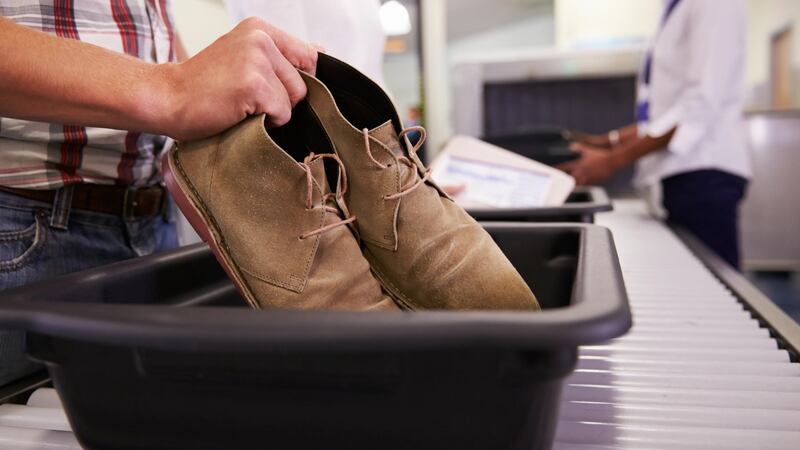ATLANTA — Soon, you’ll no longer have to remove your shoes when going through airport security checkpoints at many major airports across the country.
The Transportation Security Administration is phasing out the policy after nearly 20 years, the agency announced on Tuesday.
An unexpected memo distributed to TSA officers across the country last week said the new police allows all passengers to keep their shoes on in all screening lanes at many airports across the country starting Sunday.
[DOWNLOAD:Free WSB-TV News app for alerts as news breaks]
The policy will soon be rolled out at all US airports.
“I think most Americans will be very excited to see they will be able to keep their shoes on, and it will be a much more streamlined process,” Homeland Security Secretary Kristi Noem said Tuesday.
Until the change, the only passengers who could keep their shoes on in most cases were those enrolled in the TSA PreCheck program.
The memo said passengers who trigger the alarm at security checkpoints will be required to take their shoes off for additional screening.
TRENDING STORIES:
- Duluth couple loses $20,000 to check-washing scheme by mailing IRS payment
- Species of ‘killer bees’ spotted near Alabama-Georgia border
- 2 Atlanta officers under investigation should be fired, some tell city council
Channel 2’s Ashli Lincoln spoke to travelers at Hartsfield-Jackson Atlanta International Airport on Tuesday.
“I got to TSA and went through the scanner with my shoes on,” one man said.
“Was it way more convenient?” Lincoln asked.
“Oh, it was awesome. I loved it,” the man answered.
[SIGN UP: WSB-TV Daily Headlines Newsletter]
The policy to remove shoes began in 2006, five years after Richard Reid tried to blow up an American Airlines flight from Paris to Miami with explosives in his shoes.
His attempt failed, and he was held down by fellow passengers and the flight crew.
“I think it’s nice, and I try to look at it on both sides of the fence when you’re trying to be safe, but it is more convenient,” another traveler said.
TSA said it plans to review other rules and procedures to see how airport screenings can be simplified and expedited, she said.
The agency is testing separate lanes for military personnel and families with young children, and expects to pilot other changes in the next six to eight months, Noem said.
©2025 Cox Media Group







